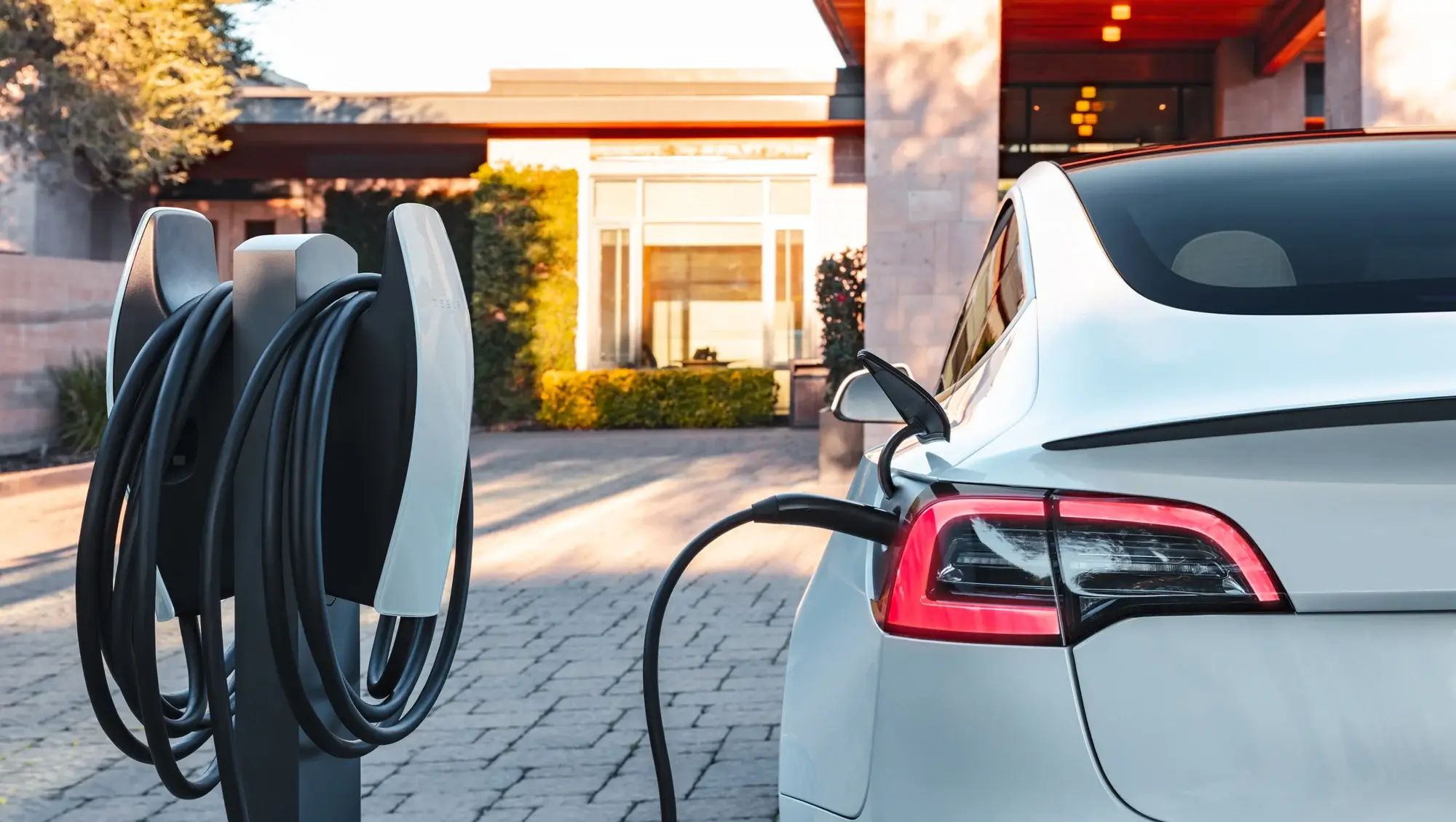Upgrading a home’s electrical system for electric vehicle (EV) charger installation is increasingly relevant in today’s energy landscape. This process addresses safety, efficiency, and compatibility with advanced charging technologies. Furthermore, such upgrades can enhance property value, attracting a market that prioritizes sustainability. Homeowners researching how to upgrade home electrical system for EV charger should start by assessing their current panel capacity, consulting a licensed electrician, and determining if additional circuits or higher amperage service is required. Understanding the necessary steps and associated costs becomes essential to making informed decisions that align with long-term benefits.
Key Takeaways
- Upgrading ensures your electrical system can safely support the additional load required for EV charging, preventing hazards and inefficiencies.
- Enhanced electrical systems improve compatibility with modern EV chargers, ensuring faster and more efficient home charging.
- A robust electrical system can increase property value, appealing to eco-conscious buyers interested in sustainable living.
- Compliance with safety standards and local codes minimizes risks associated with outdated systems, enhancing overall home safety.
- Long-term energy savings from efficient upgrades and potential government incentives can offset initial installation costs significantly.
Understanding the Need for Upgraded Electrical Systems in Modern Homes
Why is it vital for homeowners to contemplate upgrading their electrical systems in today’s technologically advanced environment? The increasing reliance on electrical devices, coupled with the rise of electric vehicles (EVs), necessitates a thorough evaluation of existing electrical infrastructures. Outdated systems may lack the capacity to support the growing demand for power, potentially resulting in safety hazards, inefficiencies, and insufficient service. Homeowners seeking to install EV chargers must consider the compatibility of their electrical panels, wiring, and circuit breakers. Upgrading these components guarantees not only compliance with safety standards but also enhances the overall functionality of the home. Furthermore, modern systems can accommodate smart technology integration, fostering a seamless connection within the home ecosystem. Understanding the need for upgraded electrical systems is therefore vital for contemporary living.
Identifying the Key Benefits of Installing EV Chargers
As the adoption of electric vehicles (EVs) continues to rise, homeowners increasingly recognize the advantages of installing EV chargers in their residences. One significant benefit is the convenience of charging vehicles at home, eliminating the need for frequent trips to public charging stations. In addition, home chargers offer faster charging times compared to standard outlets, enhancing overall efficiency.
Installing an EV charger can also increase property value, appealing to environmentally conscious buyers in a competitive market. Moreover, homeowners can potentially reduce long-term fuel costs, as electricity is often cheaper than gasoline. Finally, integrating an EV charger supports a sustainable lifestyle, aligning with the growing trend towards renewable energy adoption. Overall, the decision to install EV chargers reflects both practicality and a commitment to future-oriented living.
Essential Steps on How to Upgrade Home Electrical System for EV Charger
Upgrading the home electrical system is a significant step for homeowners planning to install an EV charger. The process begins with evaluating the current electrical capacity to guarantee it can handle the additional load. Engaging a licensed electrician is important for a thorough evaluation and to determine the necessary upgrades, such as installing a dedicated circuit and possibly upgrading the main electrical panel. Next, obtaining the required permits and verifying compliance with local electrical codes is paramount for safety and legality. Finally, selecting the appropriate EV charger that aligns with the upgraded system is essential for ideal performance. These important steps on how to upgrade the home electrical system for EV charger installation not only enhance safety but also future-proof the home for evolving energy needs.
Cost Considerations and Long-Term Savings of Upgrading Electrical Systems
A thorough analysis of cost considerations reveals that upgrading a home electrical system for EV charger installation entails both upfront expenses and potential long-term savings. Initial costs may include the installation of new wiring, circuit breakers, and possibly a service panel upgrade, which can vary greatly based on existing infrastructure. However, these investments often result in lower energy bills due to increased efficiency and the potential for utilizing time-of-use electricity rates. Additionally, homeowners may benefit from government incentives and rebates that can offset initial costs. Over time, the added value of a robust electrical system enhances property resale value, making the upgrade financially advantageous in the long run. Understanding these factors is essential for informed decision-making.
Ensuring Safety and Compliance With Electrical Upgrades for EV Charging
Ensuring safety and compliance during electrical upgrades for EV charging is paramount for homeowners and installers alike. Upgrading the home electrical system for EV charger installation requires adherence to local codes and regulations, which may include the National Electrical Code (NEC). Properly sized circuit breakers, wiring, and grounding techniques must be implemented to manage the increased load and mitigate risks such as electrical fires or system failures. Additionally, engaging licensed electricians guarantees that installations meet safety standards, providing peace of mind to homeowners. Regular inspections and ongoing maintenance further enhance safety protocols. By prioritizing compliance and safety, homeowners not only secure their investment but also contribute to a collective commitment to safe EV charging practices within their communities.
Frequently Asked Questions
What Type of EV Charger Is Best for Home Installation?
The best type of EV charger for home installation is a Level 2 charger. It offers faster charging capabilities, increased efficiency, and compatibility with most electric vehicles, making it an ideal choice for residential use.
How Long Does It Take to Upgrade the Electrical System?
The timeframe for upgrading the electrical system typically ranges from a few hours to several days, depending on the home’s existing infrastructure and the complexity of the installation. Professional assessment is recommended for accurate scheduling.
Can I Install an EV Charger Without Upgrading My System?
The feasibility of installing an EV charger without upgrading the electrical system depends on the existing capacity. Insufficient capacity may lead to performance issues or safety hazards, making system upgrades advisable for ideal functionality and safety.
What Permits Are Needed for EV Charger Installation?
When installing an EV charger, obtaining necessary permits is essential. Local regulations typically require electrical permits, inspections, and possibly zoning approvals. Compliance guarantees safety and adherence to municipal codes, facilitating a smooth installation process for homeowners.
Are There Tax Credits for Upgrading My Electrical System?
Tax credits for upgrading an electrical system may vary by region and project specifics. Homeowners should consult local regulations and programs to identify available incentives that can offset installation costs and enhance energy efficiency.
Conclusion
To summarize, upgrading a home’s electrical system for EV charger installation is a prudent investment that enhances safety, efficiency, and property value. By ensuring compliance with contemporary standards and facilitating faster charging capabilities, homeowners not only support sustainable practices but also position themselves favorably in the real estate market. The initial costs of electrical upgrades are often offset by long-term energy savings, making it a strategic decision for both immediate and future benefits.
You May Also Like To Read:


